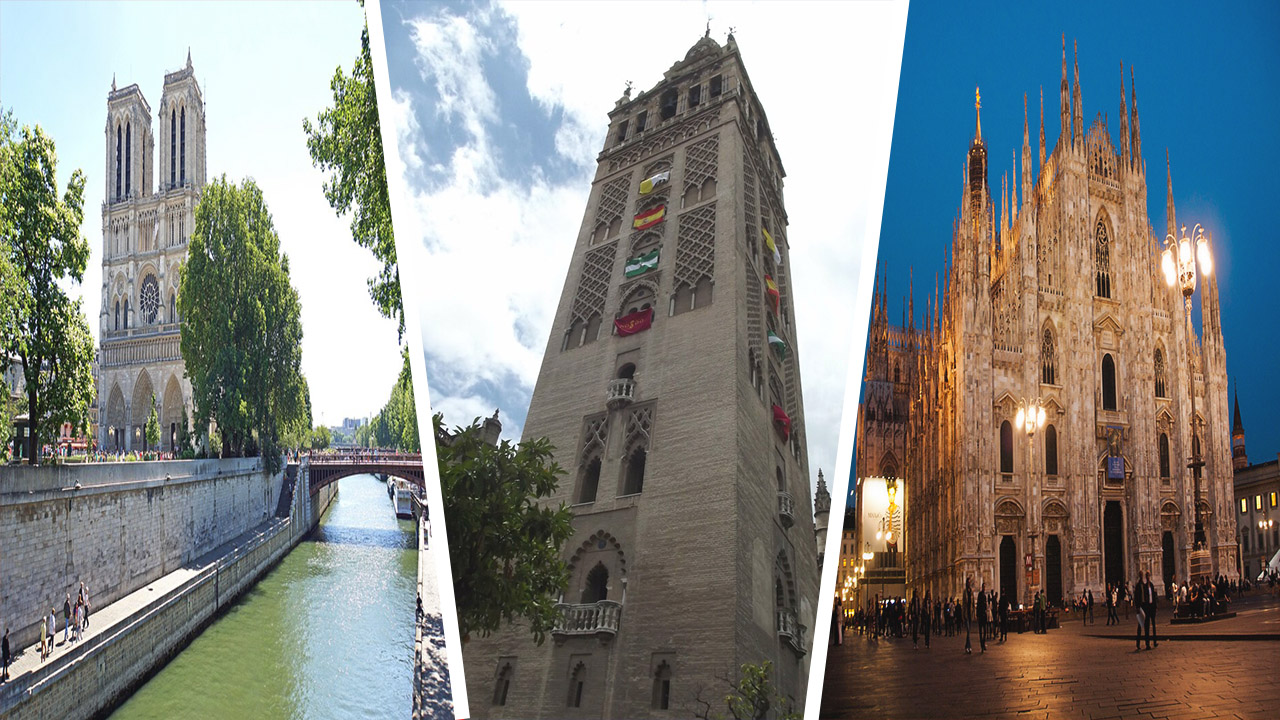Traveling is more than just a relaxing way to spend your vacation days. It’s a transformative experience that can positively impact nearly every aspect of your life. From broadening your perspective to improving your health, the benefits of travel are numerous and far-reaching. In this comprehensive article, we’ll explore 30 compelling reasons why traveling is good for you, backed by research and real-world examples.
Whether you’re a seasoned globetrotter or someone who’s hesitant to leave their comfort zone, understanding these benefits can inspire you to pack your bags and embark on your next adventure. Let’s dive into the wonderful world of travel and discover how it can enrich your life in ways you might never have imagined.
1. Broadens Your Perspective
One of the biggest benefits of traveling is expanding your worldview. Stepping outside your familiar surroundings exposes you to new cultures, customs, and ways of life. This exposure helps you see the world from different angles and understand that your way of doing things isn’t the only way.
For example, visiting a country with a communal dining culture might make you appreciate the social aspects of meals more. Or experiencing a society with a strong focus on work-life balance could inspire you to reassess your own priorities.
Read More: Most Beautiful Beaches in Norway
Research has shown that travel experiences can lead to increased cognitive flexibility, which is the mind’s ability to jump between different ideas. Students who lived abroad were 20% more likely to solve a computer task than those who didn’t travel, according to a study in the Journal of Personality and Social Psychology.
2. Enhances Cultural Awareness
Travel immerses you in different cultures, allowing you to gain a deeper understanding and appreciation of global diversity. This firsthand experience goes beyond what you can learn from books or movies.
When you interact with locals, try new foods, and participate in cultural events, you’re not just observing—you’re actively engaging with a different way of life. This can lead to increased empathy and tolerance for different cultures and customs. A survey by the U.S. Travel Association found that 76% of people who traveled internationally reported feeling more culturally aware and tolerant of differences.
3. Boosts Creativity
Experiencing new environments and situations can significantly boost your creativity. Novel experiences stimulate the brain, encouraging new neural connections and thought patterns.
Fashion executives who resided abroad produced more creative fashion collections, according to a study in the Academy of Management Journal. The researchers attributed this to the diverse cultural experiences of the executives.
Even short trips can spark creativity. Try visiting a local museum or exploring a new neighborhood in your city. You might be surprised at how these new experiences can inspire fresh ideas and perspectives in your work or personal projects.
4. Improves Problem-solving Skills
Travel often presents unexpected challenges, from navigating unfamiliar public transportation systems to communicating in a foreign language. Overcoming these obstacles helps develop your problem-solving skills.
A new environment forces you to think quickly and devise innovative solutions. This adaptability and quick thinking can translate to improved problem-solving skills in your everyday life. According to a study in the journal Experimental Social Psychology, students who studied abroad performed more creative problem-solving than those who didn’t travel.
5. Enhances Communication Skills
Traveling, especially to countries where you don’t speak the language, can significantly improve your communication skills. You learn to express yourself using non-verbal cues, pick up new words and phrases, and become more patient and understanding in your interactions.
These improved communication skills can be valuable in both personal and professional settings. A survey by the Institute of International Education found that 96% of employers valued study abroad experiences in job candidates, partly due to the communication skills developed through these experiences.
6. Reduces Stress and Promotes Relaxation
Taking a break from your daily routine and immersing yourself in new experiences can be a powerful stress reliever. A study by the American Psychological Association found that vacations can help reduce stress by removing people from activities and environments associated with anxiety and stress.
Read Also: Most Beautiful Nature in Norway
The act of planning a trip can also boost your mood. The journal Applied Research in Quality of Life published a study that found the anticipation of a vacation can boost happiness for up to eight weeks.
7. Boosts Confidence and Independence
Navigating unfamiliar situations and overcoming travel challenges can significantly boost your confidence and sense of independence. Whether it’s successfully ordering a meal in a foreign language or finding your way around a new city, these small victories add up to increased self-assurance.
A study by the British Council found that students who studied abroad reported increased confidence in their abilities to adapt to new situations and communicate with people from different backgrounds.
8. Improves Physical Health
Travel often involves more physical activity than your daily routine. Walking through new cities, hiking in nature, or trying new sports can improve your physical health.
The Journal of Travel Medicine published a study revealing improved cardiovascular health upon return for travelers who visited high-altitude destinations. Even if you’re not climbing mountains, the increased walking and activity associated with exploring new places can have positive health effects.
9. Enhances Mental Health
Travel can have significant positive impacts on mental health. A study by the Global Commission on Aging and Transamerica Center for Retirement Studies found that women who vacationed every six years or less had a significantly higher risk of developing heart disease compared to women who vacationed at least twice a year.
The change of scenery and break from routine can also help alleviate symptoms of depression and anxiety. The National Alliance on Mental Illness recommends travel as a way to reduce stress and improve overall mental well-being.
10. Creates Lasting Memories
One of the most cherished benefits of travel is the creation of lasting memories. These experiences turn into stories you can share and revisit for years to come.
The Journal of Personality and Social Psychology published a study that revealed people derive more happiness from experiential purchases, such as travel, than from material purchases. According to the researchers, experiences become part of our identity and contribute to successful social relationships.
11. Improves Sleep Quality
Traveling can help reset your internal clock and improve your sleep patterns. Exposure to natural light in new time zones can help regulate your circadian rhythm.
The Journal of Clinical Sleep Medicine published a study that found that camping trips can help reset sleep cycles disrupted by modern life. While not everyone can go camping, any travel that involves more time outdoors can have similar benefits.
12. Strengthens Relationships
Traveling with friends, family, or a partner can strengthen your relationships. Shared experiences and overcoming challenges together can create stronger bonds.
A survey by the U.S. Travel Association found that couples who travel together are significantly more satisfied with their relationships compared to those who don’t.
13. Provides Educational Opportunities
Travel is a form of education that goes beyond textbooks. Visiting historical sites, museums, and culturally significant locations provides hands-on learning experiences.
A study by the Student and Youth Travel Association found that 74% of teachers believe that travel has a very positive impact on students’ personal development.
14. Increases Adaptability
Traveling forces you out of your comfort zone and into new situations. This constant adaptation to new environments, cuisines, and customs increases your overall adaptability.
The International Journal of Intercultural Relations published research showing that study abroad experiences boosted students’ adaptability and tolerance for ambiguity.
15. Enhances Language Skills
Immersion is one of the best ways to learn a new language. Even short trips to foreign countries can improve your language skills significantly.
A study by the University of Eastern Finland found that children who traveled abroad returned with enhanced language skills, even if they didn’t formally study the language during the trip.
16. Provides Networking Opportunities
Travel can open up new networking opportunities, both personal and professional. Meeting people from different backgrounds can lead to new friendships, business connections, or even job opportunities.
A survey by the Hostelworld Global Traveler Report found that 72% of adults believe traveling has helped them build valuable friendships.
17. Increases Global Awareness
Travel increases your awareness of global issues and current events. Experiencing different political systems, economic conditions, and social norms firsthand provides a deeper understanding of world affairs.
A study by the University of Arkansas found that research study abroad experiences increased students’ interest in current events and global issues.
18. Promotes Personal Growth
Travel often leads to self-discovery and personal growth. Facing new challenges and experiences can help you learn more about yourself and your capabilities.
Research published in the Journal of Personality and Social Psychology found that extended travel experiences can lead to long-term changes in personality, particularly increases in openness to experience and emotional stability.
19. Enhances Appreciation for Home
While traveling is exciting, it can also make you appreciate your home more. Experiencing different living conditions and cultures can highlight aspects of your home life that you may have taken for granted.
The Journal of Happiness Studies found that vacationers’ increased happiness upon returning home was due to a renewed appreciation for their daily lives.
20. Provides Opportunities for Volunteering
Travel can provide opportunities for meaningful volunteer work. Volunteer tourism, or “voluntourism,” allows travelers to contribute to communities while experiencing new cultures.
According to a study in the Journal of Sustainable Tourism, after their experiences, volunteer tourists reported higher self-efficacy and life satisfaction.
21. Improves Time Management Skills
Travel often involves juggling multiple activities within a limited timeframe. This can improve your time management skills, which can be beneficial in your personal and professional life.
Research published in the Harvard Business Review suggests that time off and travel can increase productivity and creativity when you return to work.
22. Enhances Culinary Experiences
Trying new foods is a significant part of travel. Experiencing different cuisines can broaden your palate and inspire you to try new recipes at home.
According to a Booking.com survey, 51% of global travelers consider experiencing new cuisines to be their primary motivation for travel.
23. Provides Opportunities for Self-Reflection
Being away from your usual environment provides time and space for reflection. This can lead to new insights about your life, goals, and priorities.
A study published in the Journal of Environmental Psychology found that experiences in nature, often a part of travel, can increase self-reflection and personal growth.
24. Increases Empathy
Experiencing different ways of life can increase your empathy towards others. Seeing how people live in different parts of the world can make you more understanding and compassionate.
The Journal of Cross-Cultural Psychology published research showing that study abroad experiences boosted students’ empathy for people from different cultural backgrounds.
25. Improves Decision-making Skills
Travel often requires making quick decisions in unfamiliar situations. This can improve your overall decision-making skills.
Multicultural experiences boost creativity in decision-making, according to a study in the Journal of Personality and Social Psychology.
26. Provides Opportunities for Adventure
Travel allows you to step out of your comfort zone and try new adventures. Whether it’s bungee jumping in New Zealand or exploring ancient ruins in Peru, these experiences can be exhilarating and life-changing.
According to a Topdeck Travel survey, 86% of millennials travel to experience new cultures, with adventure experiences at the top of their list of priorities.
27. Enhances Photographic Skills
Travel provides endless opportunities for photography. Whether you’re a professional or just enjoy taking snapshots, capturing new sights can improve your photographic skills.
A study by the University of Lancaster found that taking and sharing photos during travel experiences can enhance enjoyment and engagement with the destination.
28. Improves Cardiovascular Health
Travel often involves more physical activity than your daily routine. This increased activity can have positive effects on your cardiovascular health.
According to a study in the American Journal of Epidemiology, men who didn’t take an annual vacation had a 21% higher risk of dying from all causes and a 32% higher risk of dying from heart disease.
29. Increases Mindfulness
Travel can increase mindfulness by encouraging you to live in the moment and fully experience your surroundings.
Research published in the Journal of Positive Psychology found that tourism experiences can enhance mindfulness and subjective well-being.
30. Provides Opportunities for Lifelong Learning
Travel is a form of lifelong learning. Each trip provides new knowledge and experiences, contributing to personal growth and development throughout your life.
A study by the Association of American Colleges and Universities found that study abroad experiences contribute to lifelong learning and personal development.
Conclusion
The benefits of travel extend far beyond just having a wonderful time. From broadening your perspective and enhancing cultural awareness to improving your physical and mental health, travel has the power to transform your life in countless positive ways.
Whether you’re planning a weekend getaway or a round-the-world adventure, remember that each journey offers unique opportunities for growth, learning, and self-discovery. The experiences you gain and the memories you create while traveling can enrich your life long after you’ve returned home.
So, the next time you’re considering whether to take that trip, remember these 30 reasons why traveling is beneficial for you. Pack your bags, step out of your comfort zone, and embrace the transformative power of travel. The world is waiting for you, and the benefits are boundless.
























